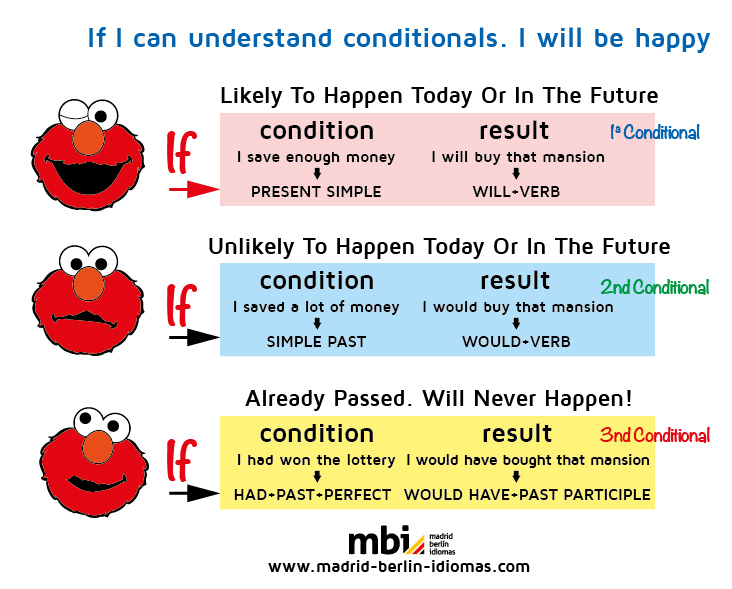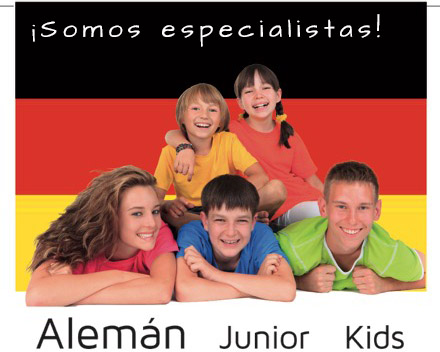Conditionals

All conditionals in 10 minutesAll conditionals in 10 minutes
Zero conditional:
When it´s always true
If water reaches 100 degree Celsius, it boils.
It´s true in any situation and under any circumstances on this planet. So we use Zero Conditional
It doesn´t have to be a cientifical subject.
You can be talking about a machine that always acts the same way.
“If you press this bottom the machine gives you coffee
if PRESENT // PRESENT
First conditional
Real possibilities in the future. It´s not necessarily always true.
If PRESENT // will (won´t)
If I see him, I´ll tell him
But if I will,…. WRONG
The second thing that is worth saying about this conditional is that you don´t have to say WILL in the second part.
Will can be replaced by
- can/must/may/should.
If I do my homework, I can come the lesson
- You can use an imperative, instead of WILL. It´s first conditional, refearing to the future, but instead of will, we have an imperative
Call a doctor if you feel sick.
Wait five minutes if you want an answer/ beer.
The Second conditional is used in hypothetical present/future situations.
What would you do if you won $ 100,000?
We use a past verb for something that is happening in the present, what may be very confusing.
What would you do if you were president?
If PAST // WOULD (WOULDN´t)
If I won one million pounds , I´d by a yacht
If I had a car , I´d drive to work
If I were president, I´d decrease taxes
Notice that would can be replaced by could/ or should
The Third conditional is used in hypothetical past situations. Is very common.
The good news is that British people make many mistakes when they say it quickly.
Conan Doyle often doesn´t use it correctly. I think it was aceptable 100 years ago, but it´s not nowadays.
If had + third form of the verb (past participle) // WOULD (WOULDN´t) + have + third form of the verb(past participle)
If I had gone to university, I WOULD have found a better job.
We are talking about a hypothetical possibility in the past.
You didn´t go to university… so didn´t find the better job. But you´re talking about how your life would have been different if you had behaved in a different way or if you had made different choices.
If Russia hadn´t won the Second World War, things would´ve been very different
Very often we talk about our lifes and how things could have been if we had made other choices.
If I would ==== ALWAYS WRONG ¡!!!!!!!! La cláusula que lleva “if” nunca lleva will, ni would ni would had(would´ve)….. NUNCA= NEVER, EVER, EVER:
We can use other modal forms instead of “would have been” like
Could have been // or should have been.
Third conditional = hypothetical past situations
Please, notice that when I´m saying “presens” you can use P simple, or continuous. And we I say “past” you can use Past simple or continuous.
For example,
If I had being wearing mountain boots, I wouldn´t have fallen.
MIXED conditionals.
hypothetical past mixed with hypothetical present.
If I hadn´t stolen the money I wouldn´t be in prison now. (mixed )
Or
If I hadn´t stolen the money I wouldn´t have gone to prison. Straight third conditional.
But you can tie it to a present hypothetical situation.
Well, I know there´s a lot of information to take in * but do your best and think, with a lot of practice it becomes easier and easier.
Good luck and enjoy learning English.
END.
* To take in= verbo compuesto importantísimo: asimilar, entender, comprender, enterarse de algo.


